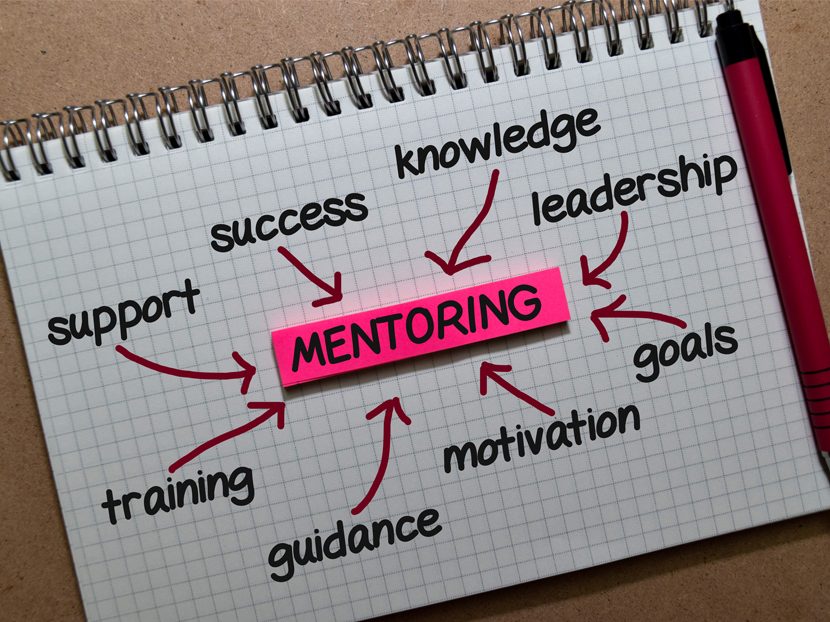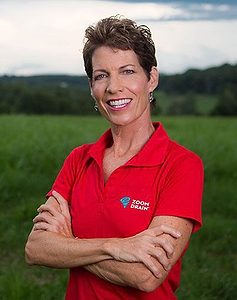The Problem with Mentorship
Mentors can fast-track your success. However, they are not perfect, or magic or even senior to your own knowingness.

I’ve been in this awesome industry for a long time. I’ve put in the 10,000 hours and then some. Gratefully, I am more excited than ever about what is to come.
Much of my confidence comes from the great lessons I’ve learned from mentors along the way. I’ve also gained so much from helping others start, fix and grow businesses. And I’ve learned lots of lessons the hard way by just muddling through — and have the scars to prove it.
Mentors can fast-track your success. However, they are not perfect, or magic or even senior to your own knowingness. I’m offering the following tips for mentors and mentees in gratitude to the wonderful mentors I have had and the outstanding leaders for whom I have had the privilege of “holding their beer.”
Be picky
When it comes to finding mentors, it’s best to watch and listen before reaching out. Has this person accomplished something you want to do or achieved demonstrable success in an area of life with which you struggle? Do a little research — listen to their podcasts, Google-search them and dig into their LinkedIn profiles. Watch for integrity between what they say and what they do.
One of the reasons Frank Blau is such a great mentor to me is that he evidenced the success of his business strategy. Frank showed his W-2s from the presentation stage. Hard to resist that kind of credibility.
I found Frank by writing him a letter, responding to one of his columns. In my letter, I told him he was dead wrong. He called me in spite of my awkward first approach and set me straight. I cherish his mentorship and teach what I’ve learned from him about financial strategy every day.
Some mentors I found serendipitously. I met Al Levi through our mutual friend and mentor, Dan Holohan, and Al introduced me to Jim Criniti. These savvy businessmen have become my best friends and trusted partners.
Other mentors, I pursued. I started an online radio show about 10 years ago — now called a podcast — with the express purpose of talking to business people whom I’d studied and admired. That’s how I met Jack Stack and Brian Scudamore and scores of other brilliant minds. Having those conversations is one of the motivations for the PHCPPros Behind the Wall podcast series (www.phcppros.com/behind_the_wall).
Mentors are human
When you find a mentor, be careful not to put him or her on a pedestal. Once upon a time, I was at a “big table” meeting with the executives of a large industry conglomerate. The senior executive at the table was a mentor of mine, and I held him in high regard.
During the meeting, he turned to one of his vice presidents and started to berate him. He raised his voice, called him names and rattled off a list of his transgressions. The receiving party recoiled but took it as the rest of us silently watched, eyes wide and jaws dropped. I was gobsmacked at the unprofessional behavior.
After the meeting, I found one of the other attendees and expressed my concerns to him: “What just happened? Why is it OK that he got abused like that in front of us? Should I have jumped in and defended him?” He responded: “Ellen, you have been operating under the assumption your mentor is perfect. He’s not. He’s human.”
That landed hard. I elevated this man, and other mentors in my life, to a level above the rest of us mere mortals. Now I am more sympathetic to my mentors. I accept that they are flawed as well as gifted and still have much to offer.
Mentorship backflows
If I am to extend compassion to my mentors, I must allow it for myself, too. As a mentee and a mentor, I am going to make mistakes. Too many times, I have asked for help, then refused it. Or argued as to why the wisdom wouldn’t apply to my life or situation.
It’s OK to resist or refuse advice. However, I discovered that it is helpful to listen when I ask a question. And try things if what I am doing isn’t working very well — even if they are out of my comfort zone.
However, sometimes your mentor is just flat-out wrong. Or what once worked no longer works. The best mentoring relationships flow back and forth. Your opinion is not worth less than your mentors; it’s just colored by your experience — not theirs. A good mentor will welcome the dialogue.
Another thing: I’ve had people call or email me to thank me or correct me on some advice I’ve given either directly or from a stage or in a column. Sometimes, what they tell me I said, I don’t remember saying or ever believing. In other words, what you mean to communicate doesn’t always land the way you intended. Just sayin’.
Make standards standard
Over the years, I have changed what I will tolerate of myself and others. While I am more compassionate, I am also less blindly tolerant. This is a paradox, not a contradiction.
I no longer tolerate the bullying and “mansplaining” that I once did. Too often I stood silently while a highly regarded, successful person behaved badly. Calling a “time out'' can allow the offender to correct course. At the very least, it lets the people in the room know that you consider the behavior unacceptable.
There are plenty of times I behaved badly, too. Most of the time, I was trying to be funny and crossed the line to hurtful. I must be willing to be called out on my behavior, too, and now encourage my team to do so.
Standards are defined by right action and corrective action. Apologizing is not a sign of weakness. Standing up for each other can be a mentoring moment.
One of my commitments is to help more women find success in our awesome industry. In years past, I have been oblivious to the unique challenges of women, people of color and minorities in the PHCP world. We’ve got a long way to go to level up, and mentorship is a worthy path to travel. It’s why I am highlighting so many extraordinary women in our Behind the Wall podcasts.
Give credit and expect none
Most of the mentors I know appreciate it when you appreciate them. If you took their advice to heart, let them know the results and your gratitude. As a mentor, keep in mind what a mentor once told me: “When your clients fail, it’s your fault. When they succeed, it’s theirs.” He didn’t mean it as a warning but as a prescription. Let them have the win.
So often, mentorship evolves into connecting people in your contacts list. “Oh, I know someone who is in a similar situation. Let me introduce you!” Healthy mentorship evolves into friendship, and that’s pretty cool.
Seek advice from those who have been where you want to go and done what you want to do. Then, pull that counsel through your own filter and make your own decision. You’re the boss of you. Sometimes the long way there is the most valuable. And some mentors, well, you just outgrow. Like other relationships in your life, mentoring relationships can run their course.
In business and in life, sometimes you need a hand and sometimes you can offer one.





